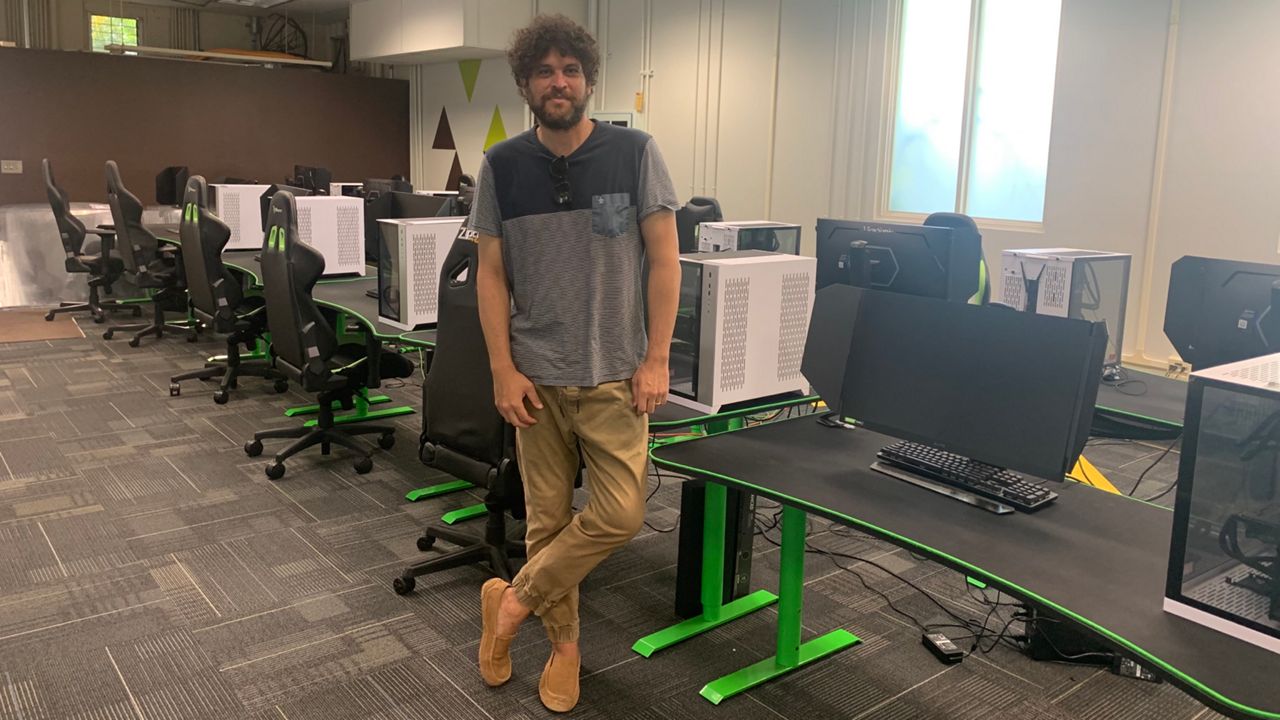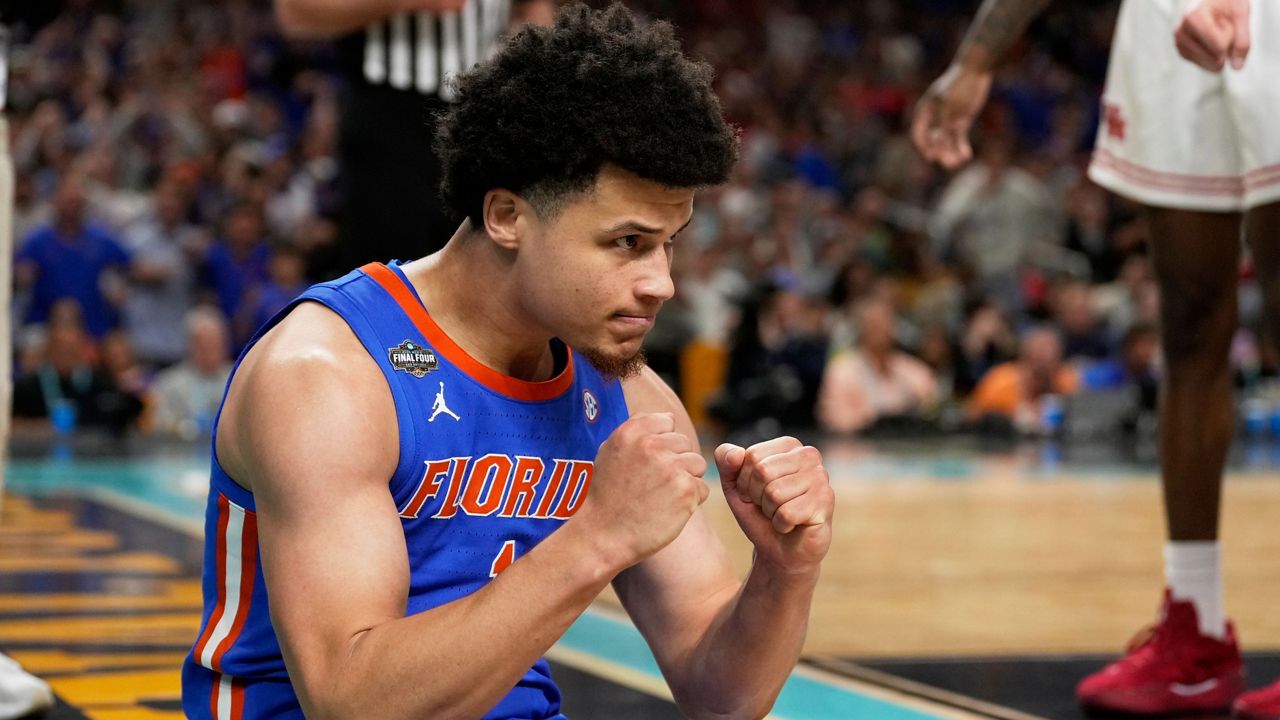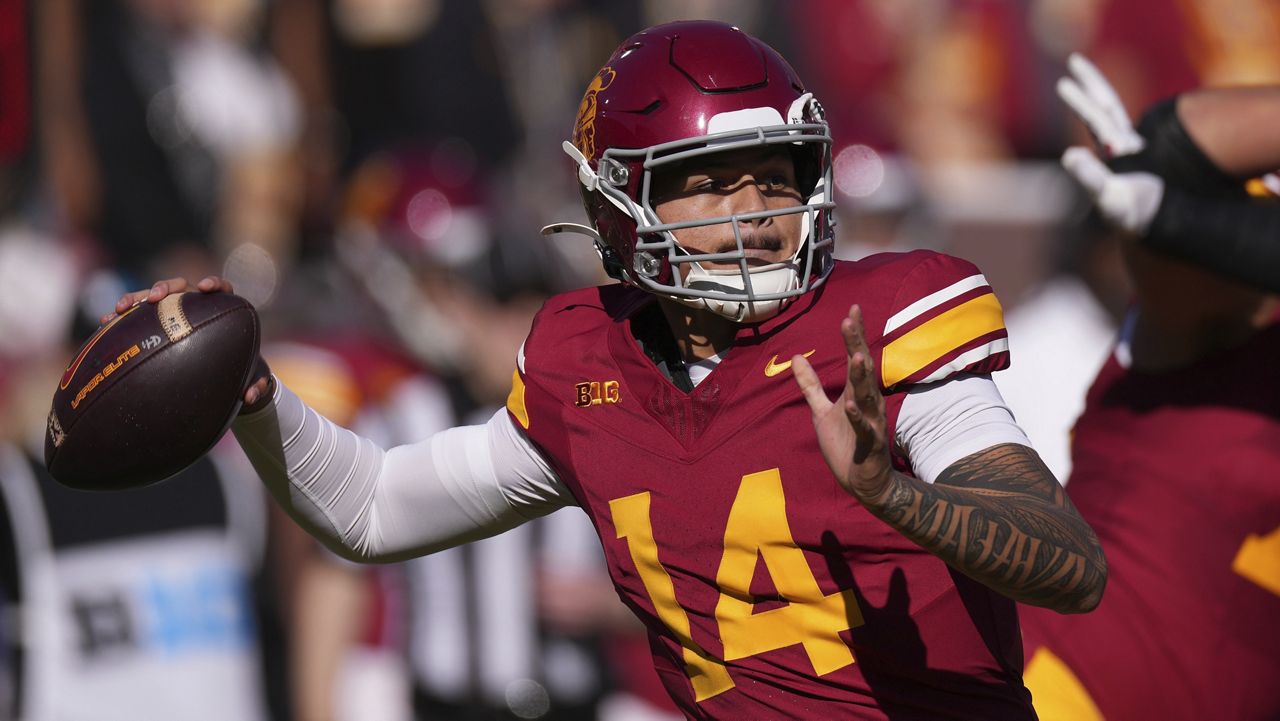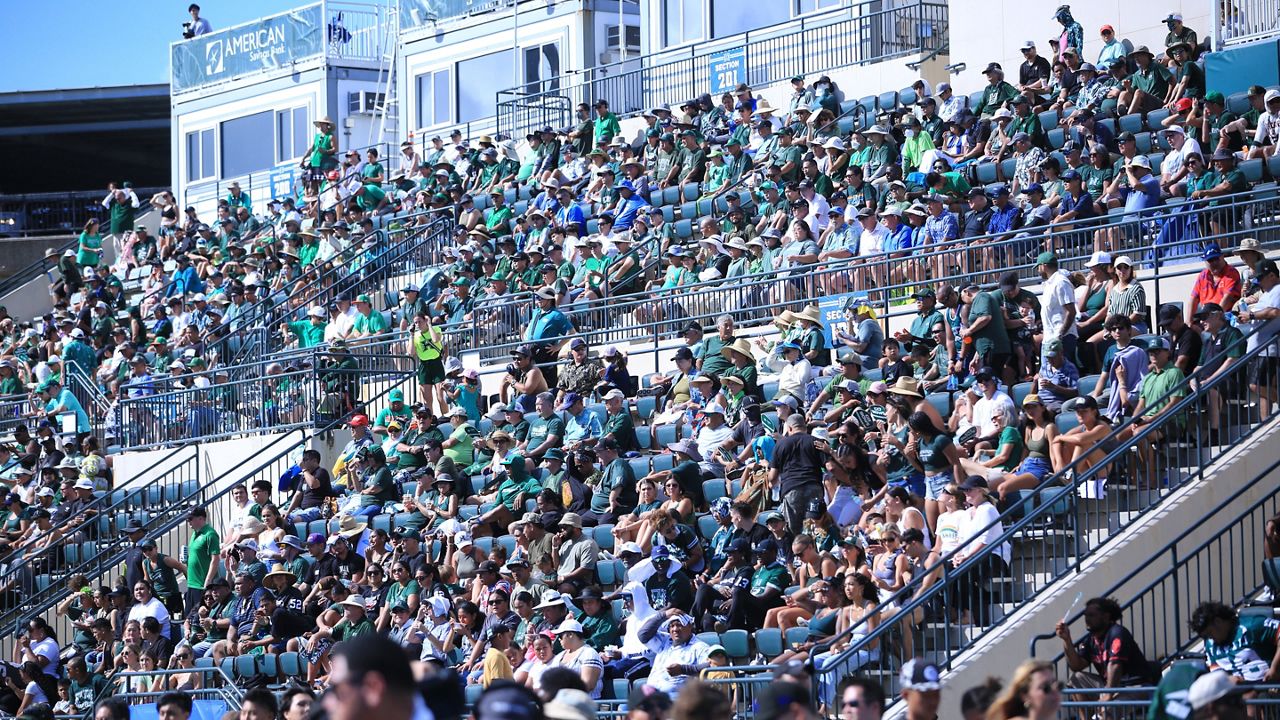HONOLULU — The growing University of Hawaii Esports program has another prime opportunity to showcase its potential next month upon the return of the professional Overwatch League to the islands.
The program’s official birth as a competitive collegiate entity was in 2018, when UH competed in a Mountain West Conference tournament in the team-based shooter Overwatch against the likes of Boise State and San Diego State. But last summer, when UH was called upon to host five remote international tournaments for the Overwatch League (OWL), its moment of real awakening arrived.
Thanks to its unique geographical location and its ability to facilitate play between pro franchises from far-flung locations in Asia and North America during the pandemic, the university was put on the map as a unique hub for esports – no more so than for the OWL Grand Final in September between the Atlanta Reign, playing from UH, and the Shanghai Dragons, playing from China. The victorious Dragons, playing to the largest livestreaming audience of any Overwatch League match (more than a million people) took home $1.5 million in prize money.
For UH, the benefits were both tangible, like the Overwatch League gaming chairs that proliferate in the newly rebranded UH Esports Arena (the former iLab near Campus Center), and abstract, like the general sense of belonging with its collegiate peers in the Electronic Gaming Federation.
“From (OWL’s 2021 appearances), our program has continued to grow and ride that momentum,” said Sky Kauweloa, who directs UH Esports. “Right after that took place, we’ve only had continued interest from other educational institutions, from students from other universities, from other collegiate programs …”
With publisher Activision Blizzard deciding to bring OWL back to the Manoa campus from July 15 to 24 for its “Midseason Madness” tournament amid sustained COVID surges worldwide, UH is in a position to show off its progression on multiple fronts. Midseason Madness could be viewed widely, as it will feature feature 5-on-5 competition in the yet-to-be-publicly-released game Overwatch 2.
Administrative support, student-athlete recruiting and competitive outcomes have all jumped up a notch from this time a year ago. Crossover events with programs like Hawaii Pacific University, which boasts the state's biggest collegiate esports venue, have increased, Kauweloa said.
Kauweloa said he hasn’t had to actively recruit players; they’ve tended to recruit themselves to UH, which has a tryout system in place for games like Rocket League, Super Smash Bros. Ultimate, Valorant and the other four titles in which it competes.
“There’s still a lot of room to grow,” said program assistant Kevin Nguyen, who shares the hope with Kauweloa that UH could offer its first esports scholarships in the Fall 2022 semester to help even the playing field with other programs.
The university put together an internship program for college credit for about 20 students in last year’s OWL “Project Aloha” tournaments. The students assisted the OWL operations team in setting up, executing and breaking down the high-end competition for pro players arranged in rows of high-end gaming computers. While UH’s disparate setup wasn’t perfect – its iLab and areas of the Information Technology Services building were commandeered – it was workable, and the bottom line was the university made do on its ability to send live data with relatively minimal lag to the Overwatch server in Japan via undersea fiber optic cable.
Now many of those same students, who became relative veterans in by the time the five months of play at UH ended, will assist a new crop of a dozen interns.
“We want to make this work. Just like last time, we want to provide (student) internships, provide opportunities that lets them shadow and use this, instead of just as a rental agreement, as something much larger for the students,” Nguyen said.
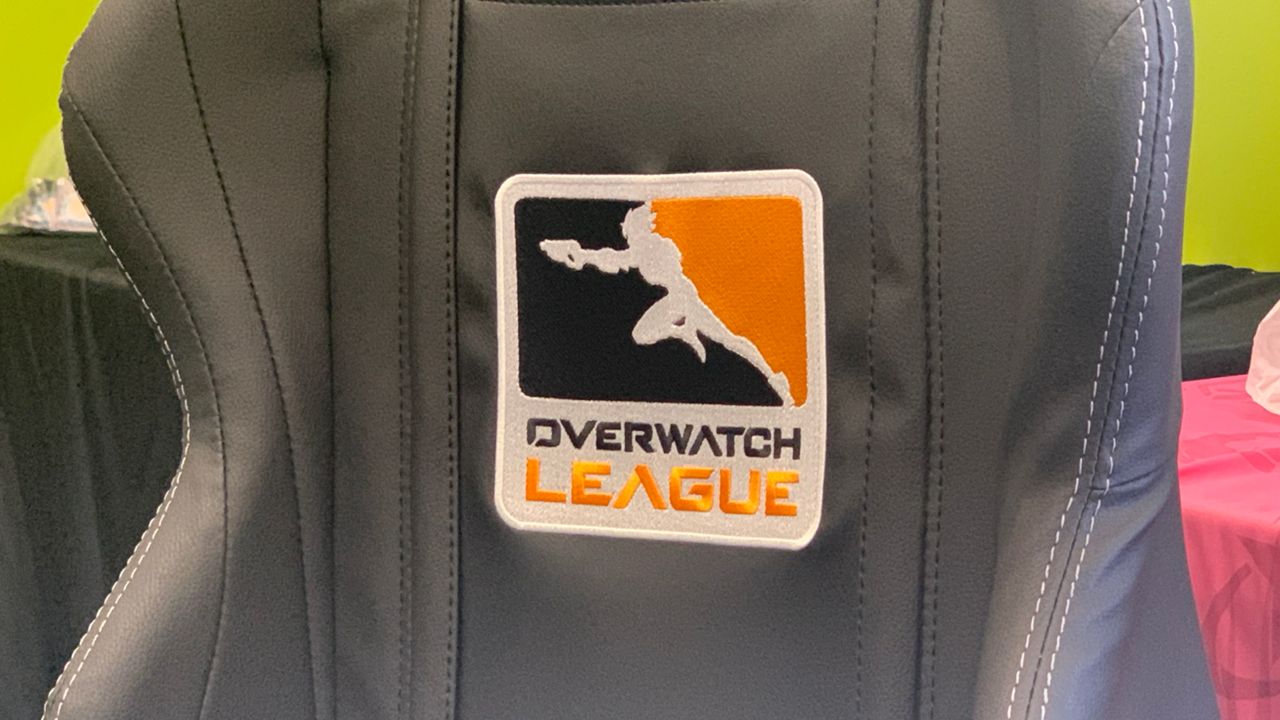
UH got another breakthrough with its first collegiate esports championship in the first-person shooter Valorant last October. That remains its most competitive game among the seven titles it competes in, as UH remains ranked in the top four.
Kauweloa considers the UH esports content team of about 15 people to be just as important as its roughly 50 competitive varsity players. They assist with graphics, editing, broadcasting and player profiles.
“This program has always been one in which I can foresee students getting a glimpse into what the future of esports can be for them,” Kauweloa said. “I want this program to be an experiment, a sandbox for them to play around in.”
As an example, one former member of the UH esports team recently was hired by game developer Bungie.
Kauweloa said UH President David Lassner, UH Director of Academic Technologies Hae Okimoto, the UH Esports Academic Task Force out of the College of Social Sciences and the UH Academy for Creative Media have all been instrumental in supporting the program.
As evidence, UH has about a dozen new high-end gaming computers that it did not possess at this time last year for its varsity players.
“The biggest way that this is starting to transform in terms of support is that now … there’s more momentum, more interest and more of a focus to embedding this position – either within the program itself or at the academic level – in which esports can be a permanent part of the future of the University of Hawaii,” he said.
Brian McInnis covers the state's sports scene for Spectrum News Hawaii.




